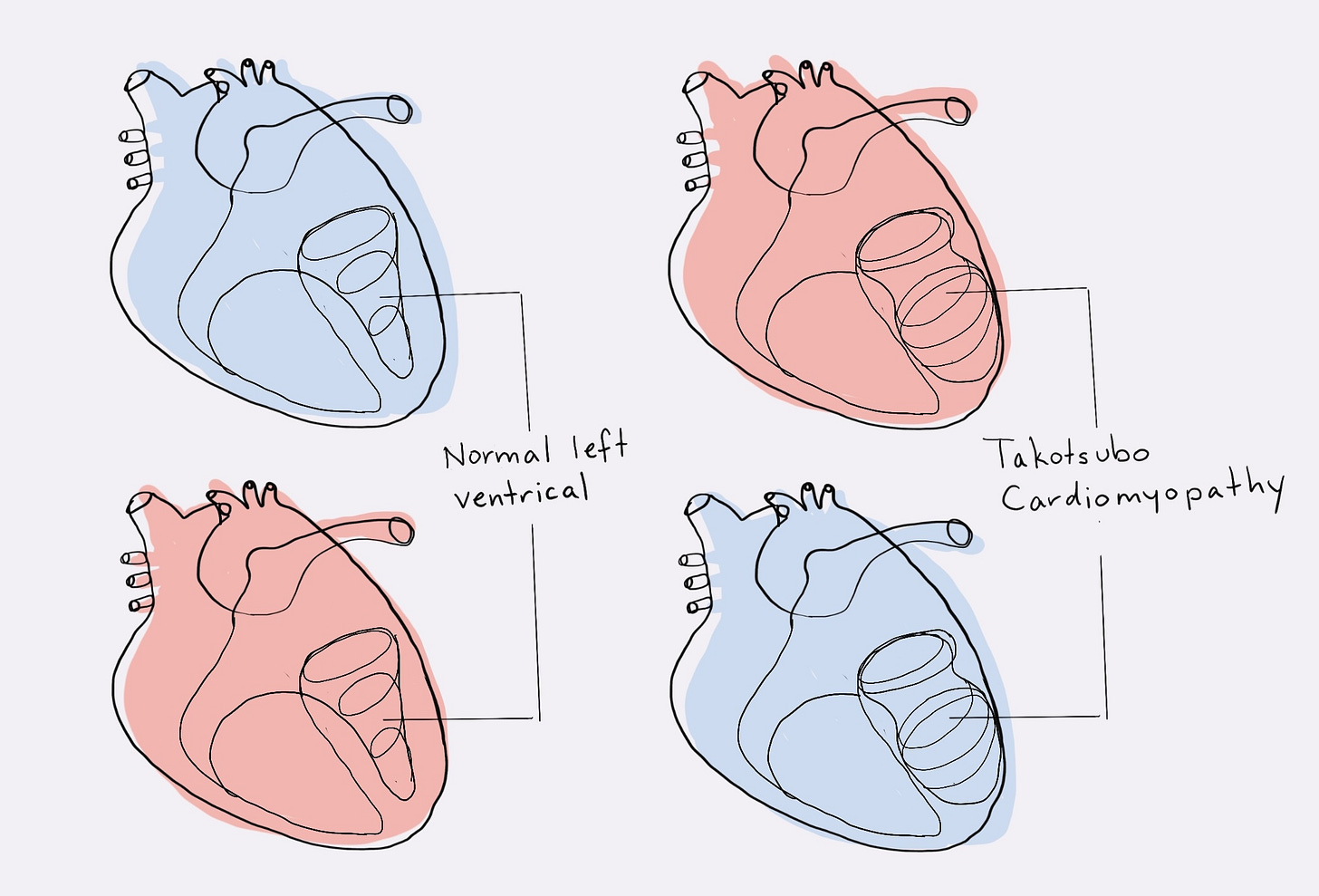So, I had a post planned for this month until I realized that the first Tuesday of November would be, well, today. I suspect that no one—certainly not in the US at least—cares to read about art and science on election day. I even considered for the first time skipping a month. But all the talk of the electoral college system got me thinking about hearts. I’ll keep it brief.
For our hearts to work at all, ions pouring over the border of cell membranes create electrical stimuli that tell our hearts’ muscle fibers to contract. But the strength of a stimulus must reach a certain threshold, below which nothing happens, and above which the muscle contracts to the maximum degree no matter how much higher the stimulus is over the threshold. Sound familiar?
It doesn’t matter how many more Pennsylvanians over the majority vote for a candidate. If the votes reach that threshold, the candidate will receive the maximum 19 electoral votes. If they don’t reach the majority, they get nothing. There’s no partial credit on this test; it’s pass or fail.1 But in the case of an election, a heartstopping fail for you is a heartswelling pass for someone else.
I grew up in a red state. I know our country’s hearts can’t be classified simply as bleeding or absent. I know people with bigger hearts than mine who will vote differently than me today, and though I wish with all my little heart that they wouldn’t, I’m reminded of the raucously upbeat song Doomsday by Elvis Perkins, in which he sings,
And though you voted for that awful man
I would never refuse your hand
On Doomsday, on Doomsday
He was talking about George W. Bush.
I saw Elvis Perkins and his band play Doomsday live at a tiny record store in San Diego, the percussionist pounding around the storefront on a giant drum defiantly, triumphantly. It was 2009. I remember the feeling. So much has happened since then.
We can never truly know what is in each other’s hearts, only that they are all prone to break. Takotsubo cardiomyopathy, also known as broken heart syndrome, is a real-life heart condition that arises from extreme emotional or physical stress.2 Discovered in Japan in 1990, it can strike when grief, fear, extreme anger, and surprise unleash a torrent of adrenaline and stress hormones that weaken the heart’s left ventricle.3 The wearied chamber takes on the shape of a Japanese octopus trap, or in Japanese, takotsubo, leading to symptoms akin to a heart attack. Thankfully it is temporary, and very rarely fatal. But this is certainly something to be avoided if possible, so what to do with the fear and anger?

Instead of vilifying each other, some are turning their rancor to the Electoral College system itself, which in the most extreme (and unlikely) case could technically, with certain assumptions, elect a president with only 23% of the popular vote.4 This is because the number of electoral votes allotted is not perfectly proportional to a state’s population. For example, Wyoming has 3 electoral votes to California’s 54, which kind of makes sense until you count up their populations. California has 18 times as many votes, but its population is over 68 times greater than Wyoming’s.
If the heart worked this way—one chamber’s maximum contraction strength being set arbitrarily higher proportionally than another’s, for example—one could be left with ventricles that constantly receive more blood than they could pump out. I’m not a cardiologist, but that sounds bad. Too much blood.
Hearts and democracies are fragile. I’ve done what I can do and it’s out of my hands now. I will watch for signs that I need to step away from the news tonight and possibly over the next several days. Be well yourself, and I’ll see you on the other side.
A good friend and political science professor reminded me that Nebraska and Maine are exceptions since they are not winner-takes-all for electoral votes.

